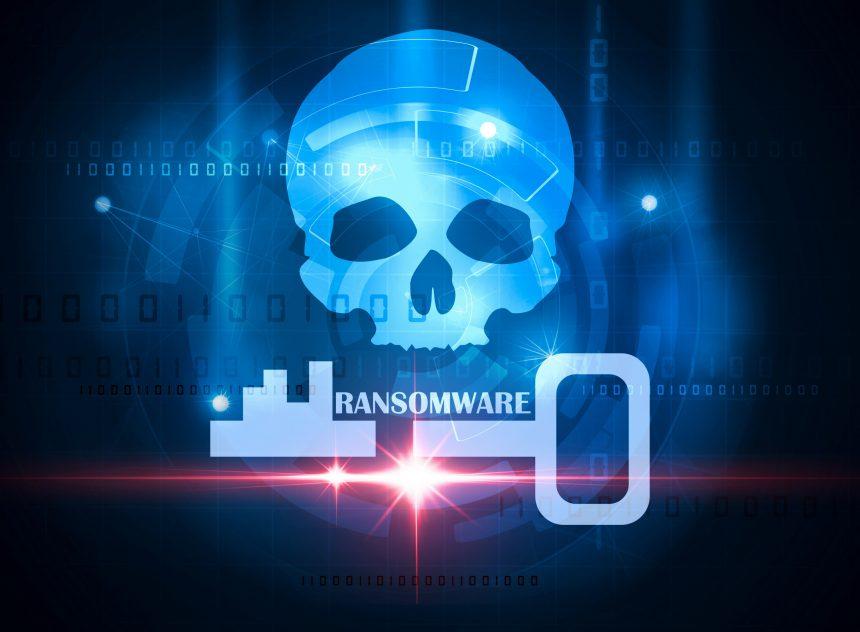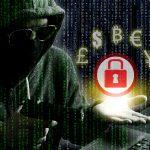Ransomware is a malicious form of malware designed to deny users access to their data, typically by encrypting files and demanding a ransom for decryption. Ransomware attacks can be devastating, leading to data loss, financial harm, and significant operational disruptions. One such example of ransomware is BlackZluk, which poses a severe threat to individual users and businesses alike.
Download SpyHunter Now & Scan Your Computer For Free!
Remove this and any other malicious threats to your system by scanning your computer with SpyHunter now! It’s FREE!
Overview of BlackZluk Ransomware
BlackZluk ransomware infiltrates systems through various means, with email attachments, malicious links, and exploit kits being common vectors. Once executed, this ransomware begins its malicious operations, scanning the system for files to encrypt. It primarily targets various document formats, including documents, images, and videos, altering the file extensions to indicate encryption, such as changing files to .blackzluk. This alteration signals to users that their files are inaccessible until they comply with the ransom demands.
After installation, BlackZluk performs several actions. It first encrypts the targeted files using advanced encryption algorithms, making recovery without the decryption key nearly impossible. Following encryption, the ransomware generates a ransom note, which is typically saved in text files on the infected system. This note outlines the ransom demands, instructions for payment, and threats regarding data deletion or permanent loss if payment is not made promptly.
The general purpose of BlackZluk, like other ransomware, is financial gain. By rendering files inaccessible and demanding payment, it exploits users’ desperation to recover their important data. The psychological impact on victims can be profound, as they grapple with the fear of losing valuable information permanently.
The BlackZluk ransom note typically reads as follows:
If you do not pay the ransom, we will attack your company again in the future.
Start messaging with your unique ID an incident file #RECOVERY#.txt
your unique ID
–
Hello my dear friend (Do not scan the files with antivirus in any case. In case of data loss, the consequences are yours)
Your data is encrypted
Unfortunately for you, a major IT security weakness left you open to attack, your files have been encrypted
The only method of recovering files is to purchase decrypt tool and unique key for you.
Download the (Session) messenger (hxxps://getsession.org) in messenger: 0569a7c0949434c9c4464cf2423f66d046e3e08654e4164404b1dc23783096d313 You have to add this Id and we will complete our converstion
In case of no answer in 24 hours write us to this backup e-mail: blackpro.team24@onionmail.org
Our online operator is available in the messenger Telegram: @Files_decrypt or hxxps://t.me/Files_decrypt
Check your e-mail Spam or Junk folder if you don’t get answer more than 6 hours.
Contact us soon, because those who don’t have their data leaked in our press release blog and the price they’ll have to pay will go up significantly.
Attention
Do not rename encrypted files.
Do not try to decrypt your data using third party software – it may cause permanent data loss.
We are always ready to cooperate and find the best way to solve your problem.
The faster you write – the more favorable conditions will be for you.
Our company values its reputation. We give all guarantees of your files decryption.
What are your recommendations?
– Never change the name of the files, if you want to manipulate the files, be sure to back them up. If there are any problems with the files, we are not responsible for them.
– Never work with intermediary companies because they charge you more money.Don’t be afraid of us, just email us.
Sensitive data on your system was DOWNLOADED.
If you DON’T WANT your sensitive data to be PUBLISHED you have to act quickly.
Data includes:
– Employees personal data, CVs, DL, SSN.
– Complete network map including credentials for local and remote services.
– Private financial information including: clients data, bills, budgets, annual reports, bank statements.
– Manufacturing documents including: datagrams, schemas, drawings in solidworks format
– And more…
What are the dangers of leaking your company’s data.
First of all, you will receive fines from the government such as the GDRP and many others, you can be sued by customers of your firm for leaking information that was confidential. Your leaked data will be used by all the hackers on the planet for various unpleasant things. For example, social engineering, your employees’ personal data can be used to re-infiltrate your company. Bank details and passports can be used to create bank accounts and online wallets through which criminal money will be laundered. On another vacation trip, you will have to explain to the FBI where you got millions of dollars worth of stolen cryptocurrency transferred through your accounts on cryptocurrency exchanges. Your personal information could be used to make loans or buy appliances. You would later have to prove in court that it wasn’t you who took out the loan and pay off someone else’s loan. Your competitors may use the stolen information to steal technology or to improve their processes, your working methods, suppliers, investors, sponsors, employees, it will all be in the public domain. You won’t be happy if your competitors lure your employees to other firms offering better wages, will you? Your competitors will use your information against you. For example, look for tax violations in the financial documents or any other violations, so you have to close your firm. According to statistics, two thirds of small and medium-sized companies close within half a year after a data breach. You will have to find and fix the vulnerabilities in your network, work with the customers affected by data leaks. All of these are very costly procedures that can exceed the cost of a ransomware buyout by a factor of hundreds. It’s much easier, cheaper and faster to pay us the ransom. Well and most importantly, you will suffer a reputational loss, you have been building your company for many years, and now your reputation will be destroyed.
Do not go to the police or FBI for help and do not tell anyone that we attacked you.
They won’t help and will only make your situation worse. In 7 years not a single member of our group has been caught by the police, we are top-notch hackers and never leave a trace of crime. The police will try to stop you from paying the ransom in any way they can. The first thing they will tell you is that there is no guarantee to decrypt your files and delete the stolen files, this is not true, we can do a test decryption before payment and your data will be guaranteed to be deleted because it is a matter of our reputation, we make hundreds of millions of dollars and we are not going to lose income because of your files. It is very beneficial for the police and the FBI to let everyone on the planet know about the leak of your data, because then your state will receive fines under GDPR and other similar laws. The fines will go to fund the police and FBI. The police and FBI will not be able to stop lawsuits from your customers for leaking personal and private information. The police and FBI will not protect you from repeat attacks. Paying us a ransom is much cheaper and more profitable than paying fines and legal fees.
Symptoms of BlackZluk Infection
Identifying a BlackZluk infection involves observing certain symptoms. Common indicators include:
- Inaccessible Files: Files may show altered extensions or be completely inaccessible.
- Ransom Note: A ransom note file typically named
README.txtor similar appears on the system. - System Slowdown: Unexplained performance issues can indicate underlying malicious activity.
- Unusual Network Activity: Increased network traffic or unusual connections may suggest data exfiltration or command-and-control communication.
Detection Names for BlackZluk Ransomware
To determine if your system is infected with BlackZluk ransomware, look for the following detection names in your security software:
- BlackZluk ransomware
- BlackZluk virus
- Ransom:Win32/BlackZluk
- Trojan:Win32/BlackZluk
Similar Ransomware Threats
Several other ransomware variants pose similar risks to users, including:
- LockBit Ransomware: Known for its fast encryption speed and complex ransom notes.
- Conti Ransomware: Targets enterprises, often compromising sensitive data before encryption.
- REvil Ransomware: Has been associated with high-profile attacks, demanding significant ransoms.
Comprehensive Removal Guide for BlackZluk Ransomware
Removing BlackZluk ransomware requires careful steps to ensure complete eradication. Here’s a detailed guide:
Step 1: Isolate the Infected System
- Disconnect the infected device from the internet and any networks to prevent the ransomware from spreading.
Step 2: Boot in Safe Mode
- Restart your computer and repeatedly press
F8(or the appropriate key for your system) to access the boot menu. - Select
Safe Mode with Networkingto limit the ransomware’s functionality.
Step 3: Scan for Ransomware
- Use a reputable anti-malware tool like SpyHunter to perform a thorough system scan. Download and install it, then run a full system scan to identify and remove the BlackZluk ransomware.
Step 4: Remove Malicious Files
- Follow the prompts from your anti-malware tool to quarantine or delete any detected threats.
Step 5: Restore Encrypted Files (if possible)
- If you have backups of your files, restore them from a secure location. Ensure that the ransomware is completely removed before reconnecting backups to your system.
Step 6: Change Passwords
- After ensuring the ransomware is removed, change passwords for all accounts, especially if you suspect they may have been compromised.
Step 7: Update Your Security Software
- Ensure that your anti-malware tools and operating system are up to date to protect against future threats.
Prevention Strategies
To prevent future ransomware infections like BlackZluk, consider the following measures:
- Regular Backups: Frequently back up important data to an external hard drive or cloud service.
- Email Vigilance: Avoid opening attachments or clicking links from unknown or suspicious sources.
- Use Security Software: Employ reliable anti-malware solutions and keep them updated to detect and block ransomware.
- Educate Users: Inform yourself and others about safe browsing habits and phishing scams.
For enhanced protection, consider downloading SpyHunter to regularly scan your computer for threats and maintain a secure environment.
Conclusion
Ransomware like BlackZluk poses significant risks to users, but understanding its functioning and taking proactive measures can help mitigate these threats. Always remain vigilant and adopt robust security practices to safeguard your data.





